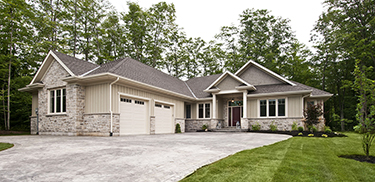|
Subscribe / Renew |
|
|
Contact Us |
|
| ► Subscribe to our Free Weekly Newsletter | |
| home | Welcome, sign in or click here to subscribe. | login |
Real Estate Buzz
| |
 Nat Levy Real Estate Reporter |
November 12, 2015
Real Estate Buzz: B.C. homebuilder sets up shop here
Real Estate Reporter
You know a region is hot when it's impossible to keep track of all the companies from out of state and out of the country that are trying to get in.
One of the latest is Alair Homes, a custom home builder from British Columbia that also acts as a franchiser for local contractors.
Alair wants to open its first office in Washington early next year, said Adam McCaa, the firm's chief communications officer. The goal is to have at least 25 offices throughout the state in a few years.
Alair also does home renovations and commercial building.
Stu Hopewell, head of operations in Washington, said Alair works with established local contractors who want to expand their business but need help with administrative duties.
“They can build beautiful homes that make clients happy, but when it comes to payroll and insurance and marketing they don't have the time because they are busy doing the construction,” Hopewell said.
Alair handles administrative functions and also requires that builders use its procedures to communicate more clearly with clients. Custom houses can get behind schedule and over budget because of poor communication from the start, Hopewell said. Clients and builders in some cases make key decisions late in the planning and construction process, and that can change the cost and schedule. A customer may have started with a $300,000 budget but after finishes, appliances and other details are selected, the cost can be a lot higher.
“Our process has eliminated that completely because we make those decisions before we start,” Hopewell said.
Contractors give a percentage of their monthly income to Alair in return for working under its flag and having access to its services. Contractors still own their own businesses, Hopewell said.
One big benefit is having a network of people to talk to, McCaa said. Because the industry is so competitive, contractors don't always have ways to learn about best practices and gather data on prices.
According to its website, Alair has 48 locations in Canada and has recently expanded into the U.S., with offices in New York, Arizona and Ohio.


Alair has teams that run all operations in a region or state. McCaa said it's not a big stretch to run a Washington office from British Columbia, but issues that come up in Ohio or Arizona may be a different story. It helps to have someone who knows a market overseeing operations there.
Ideally, Alair would like to grow from urban centers outward, but the most important factor for Alair is finding high quality contractors. They could be in a major metropolitan area, or in a smaller town 100 miles away.
“People come first,” McCaa said, “the culture is so important.”
The Puget Sound region is a natural fit for Alair. It has strong home-grown companies and other companies opening offices here. The region also shares several characteristics with British Columbia. Real estate markets are doing well in both areas, and the major metro centers of Seattle and Vancouver have seen a surge of young renters.
A few years from now, Hopewell says, those renters will be older and perhaps more interested in buying a home — maybe even a custom one.
What next: Amazon.com mall?
When Jeff Bezos started Amazon.com out of his Bellevue garage 20 years ago it mostly sold books, before expanding to carry pretty much everything. With its latest move — a real brick-and-mortar bookstore in University Village — the software giant seems to be going back to the beginning.
But some people are wondering if Amazon will make a bigger move into brick-and-mortar stores — now that it and other online commerce companies seem to have made real stores obsolete.
The Retail Owners Institute says yes. ROI is Pat Johnson and Dick Outcalt, who work as a Seattle-based team of retail strategists. They wrote an article last week saying they think Amazon could create shopping centers made up entirely of specialty stores that cater to specific markets.
The ROI piece says Amazon could use its wealth of customer data to pinpoint where different types of stores would succeed. It's already doing that with the bookstore. Amazon uses local data on customer ratings, sales and pre-orders to decide what to stock in the store.
Another influence of the web can be seen in the prices, specifically that they aren't printed on the books. Amazon charges the same price for a book in its new store as it does online. And Amazon book prices change constantly online, so customers have to use a scanner in the store or their phone to figure out what to pay.
So Outcalt and Johnson say brace yourself for more Amazon stores (“Zappos Shoes, anyone?!”) tailored to a particular market.
“In our view, what they have opened is a new kind of category killer, in a very small footprint.”
Got a tip? Contact DJC real estate editor Brian Miller at brian.miller@djc.com or call him at (206) 219-6517.
Previous columns:
- Real Estate Buzz: Shapiro ready for Harvard Exit's next act, 11-05-2015
- Real Estate Buzz: Perseverance pays off at Point Ruston, 10-22-2015
- Real Estate Buzz: After the recession and other challenges, Gig Harbor site is now getting developed, 10-15-2015
- Real Estate Buzz: Two projects, three towers may not fly in SLU, 10-08-2015
- Real Estate Buzz: Q&A with Skanska's head of sustainability, 10-01-2015
- Real Estate Buzz: 26 Fort Lawton homes go on sale soon, 09-24-2015
- Real Estate Buzz: How a bike ride helped me learn to love SLU, 09-17-2015
- Real Estate Buzz: Another Bosa brother has his eye on Seattle, 09-03-2015




